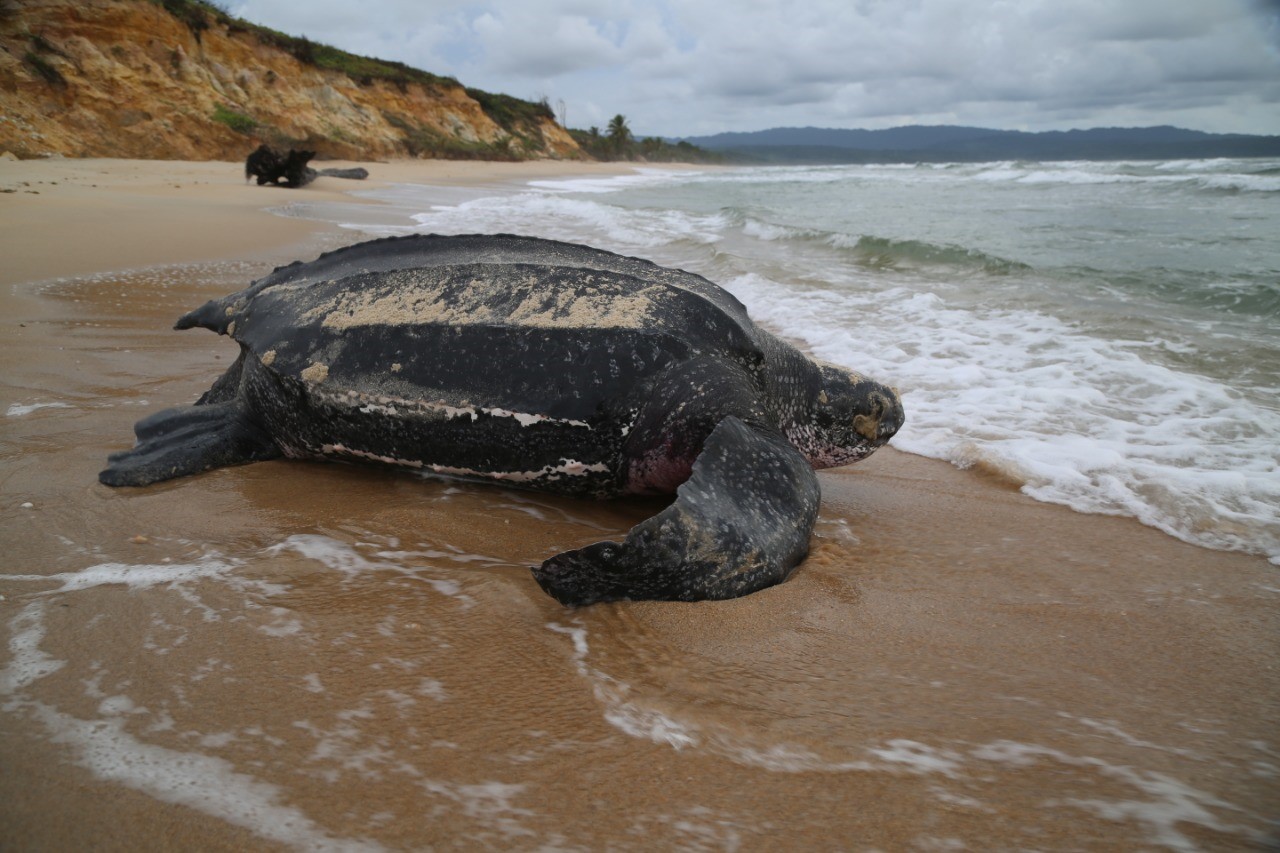CARICOM stakeholders support a strong global treaty to protect ocean biodiversity

Port of Spain, October 9, 2020 – CARICOM stakeholders consulted by the Caribbean Natural Resources Institute (CANARI) have recognised the importance of ocean biodiversity and are calling for regional collaboration and strong stakeholder involvement in global efforts to ensure CARICOM people get equitable access to and shared benefits from the ocean. Today, CANARI launched an online GIS Story Map which explores what a new global treaty on the ocean would mean to Caribbean people.
The ocean covers about 72% of the Earth’s surface and almost two-thirds of this lies in areas beyond the exclusive economic zone (EEZ) of countries, where no one nation has any authority. CARICOM negotiators have called for development of a strong international, legally binding, agreement to conserve and sustainably use marine Biodiversity in areas Beyond National Jurisdiction (the BBNJ Agreement).
For more than a decade, there have been discussions on the need for an international agreement to protect biodiversity in areas outside of national territories as current international law is inadequate. The BBNJ Agreement is being drafted under the United Nations Convention on the Law of the Sea (UNCLOS). Negotiations have been ongoing since 2016 but were disrupted in 2020 by the COVID-19 global crisis. As negotiators continue their work virtually and prepare for the next stage of formal negotiations in early 2021, CARICOM stakeholders need to continue to engage in the process and support government and regional agencies, researchers and civil society organisations that are working to protect our ocean’s biodiversity.
More than 100 million people who live on or near the coasts around the Caribbean Sea (which is split into territorial waters) benefit from the ocean for their livelihoods, recreation, health, well-being, culture and spirituality. A study by the World Bank put the economic value of the Caribbean Sea to the region at US$407 billion per year – including all its services and support to fishing, transport, trade, tourism, mining, waste disposal, energy, carbon sequestration and drug development. Globally, recent estimates suggest that the ocean contributes about 3% of the global economy, or about US$1.5 trillion annually.
Investing in protecting the ocean therefore makes economic sense and CARICOM stakeholders called for development of a High Seas Biodiversity Fund or other sustainable financing mechanism to ensure adequate funding for implementation of the BBNJ Agreement. They recognised that capacity building and technology transfer under the Agreement would benefit many CARICOM stakeholders, and recommended that capacity development should be targeted at the regional level via a regional roster of experts and regional centres of excellence to foster collaboration within the Caribbean. They also felt that CARICOM experts should be included in the proposed Scientific and Technical Body to ensure that
the best available science on the region is used and shared. Ambassador Janine Felson from Belize, who serves as Co-Chair of the CARICOM BBNJ negotiating team, noted that, “CARICOM stakeholders working in tourism, fisheries, shipping, marine scientific research and biodiversity conservation and coastal communities who depend on the sea for their livelihoods, have special interests, rights and responsibilities relevant to the BBNJ Agreement. Having their perspectives and priorities, our negotiators will be better placed to make a convincing case for improved action to protect ocean biodiversity and benefit Caribbean people.”
CANARI provided technical support to CARICOM negotiators by engaging stakeholders via workshops, interviews, an online survey and via social media. CANARI found that CARICOM stakeholders recognise
the importance of ocean biodiversity as key for Caribbean economic sectors such as tourism and fisheries. It is the foundation for livelihoods and well-being, especially of coastal communities. The Caribbean Sea connects us and defines the socio-cultural identity of the region.
CARICOM stakeholders felt that decisions about designation of areas in the ocean for special protection and management of biodiversity (for example the Sargasso Sea adjacent to the Caribbean region) should involve stakeholders to facilitate knowledge sharing, build stakeholder awareness, enable benefit sharing, build partnerships for collective action, and reduce conflicts to increase compliance. Stakeholders also need to be involved in Environmental Impact Assessments for activities in international waters, as these could negatively impact on national waters and coasts. Activities in national territories could also negatively impact on the shared ocean, which needs to be protected as the common heritage of humankind.
To learn more about how the BBNJ Agreement can benefit CARICOM people and to view our interactive GIS Story Map, ‘The Ocean and Us: What a new global treaty means to the people of the Caribbean’, please click here: https://canari.org/bbnj-consultations/.
END
About CANARI: The Caribbean Natural Resources Institute (CANARI) is a regional technical non-profit institute which has been working across the islands of the Caribbean for 30 years. Our mission is to promote and facilitate stakeholder participation in the stewardship of natural resources in the Caribbean. Our work focuses on Equity, Ecosystems and Biodiversity, Resilience, and Participatory Governance. See here for more information on CANARI: http://www.canari.org/.
Connect with us:
For further information, please contact: CANARI Executive Director, Nicole Leotaud, at [email protected]





